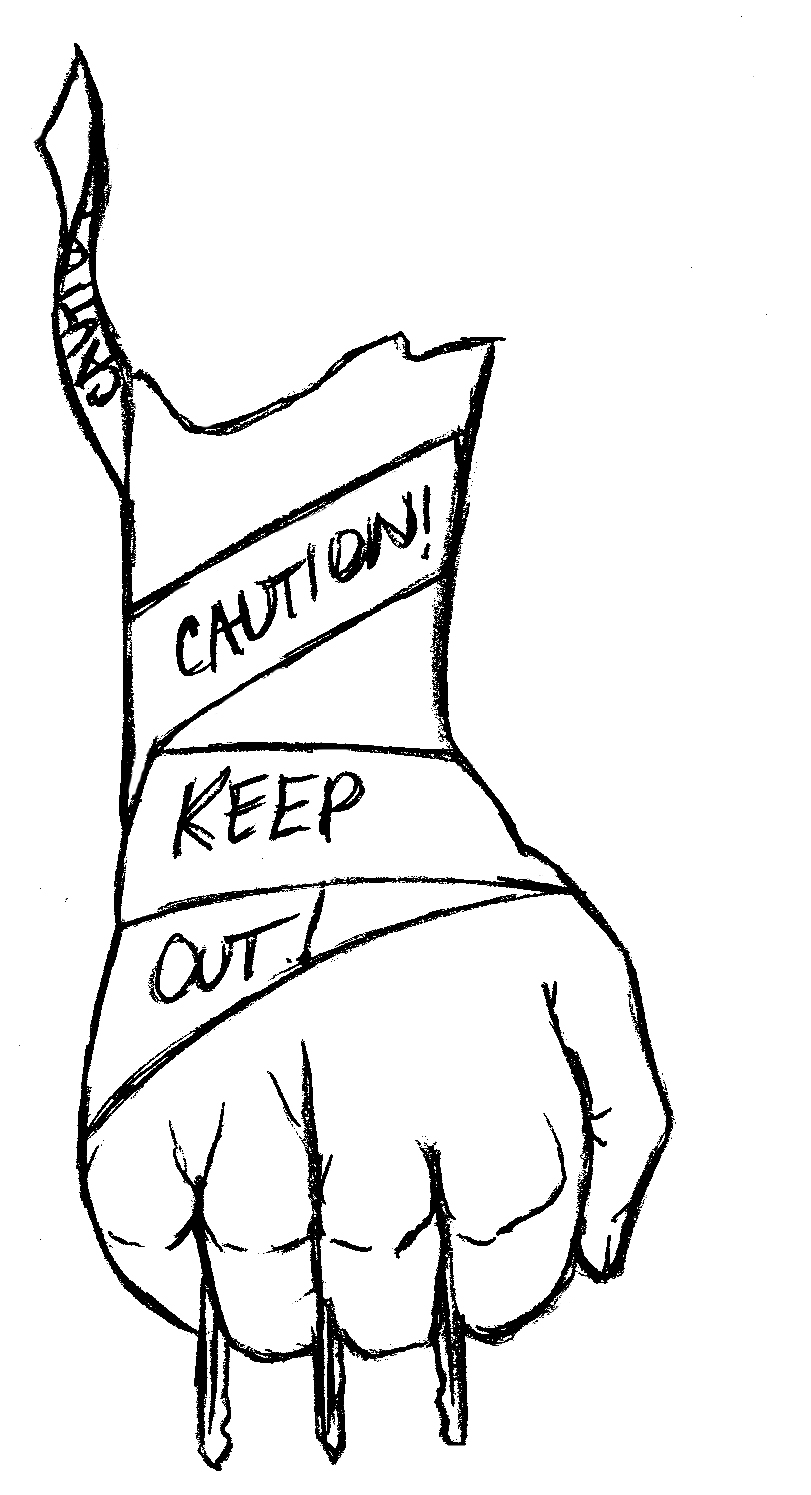Fear, safety and Kavanaugh
October 19, 2018
 This
piece represents the opinion of the author
.
This
piece represents the opinion of the author
.
 Kodie Garza
Kodie GarzaBeing abroad during the Kavanaugh proceedings left me with very few options for action. Unable to attend any protests or call my senators (not to mention the additional roadblock of Susan Collins’s conveniently timed website maintenance), I was limited to sharing posts on social media and preparing to vote for representatives who may end up not representing me at all. For this reason, I am taking the opportunity to respond to an Orient article which I found troubling: the boldly titled op-ed, “I am Brett Kavanaugh.”
I understand that men fear the possibility of being falsely accused of assault in their future. I understand that the thought of that must make them feel vulnerable. I ask in return for the understanding that women face fear of sexual assault every single day. Speaking for myself, I am afraid every time I leave my house. I fear every man I encounter on the street. I chastise myself for somehow making too much and too little eye contact to be safe. I hold my keys between my fingers even though I know that I do not have the physical strength to defend myself with them. When I am in public, I am scared whether I am moving or sitting still. And when I am home, I keep myself up worrying about what would happen if someone were to break in. All of this is to say that I feel vulnerable constantly. After two decades of feeling that way, I can say with certainty that I have never felt as vulnerable as I have since Brett Kavanaugh’s confirmation. While I have always feared the men who would hurt me (and not knowing who those men may be), I now also fear all who would defend those men, and in the last month I have realized how large and powerful that number actually is.
I also recognize that as a white woman I am not confronted by certain fears that other women in this country have to endure.
In regard to Theo de Quillacq’s evaluation of the American legal system and discussion of the right to a fair trial, it is important to understand that this is not the situation that we witnessed with Kavanaugh last month. Kavanaugh underwent a confirmation hearing, not a trial. He was under no threat of prison time or other penalties. The hearing that we watched was to decide whether he would be granted the highest position in the judiciary system or whether he would maintain the prestigious position that he already held. It was a character evaluation.
I do not mean to say that your post-Kavanaugh fears of accusation are not valid, but as a person who has always had to live with the burden of fear, I ask you to put them in perspective in terms of likelihood and impact and to empathize with women.
If what frightens you is the prospect of character defamation and false accusations, imagine the position of Dr. Christine Blasey Ford. She came forward with a belief that her country would not support those who make real the fears of so many women. Nevertheless, she was accused of lying, of doing this for attention, of being a political pawn. The person who assaulted her now sits on the Supreme Court, and she continues to be threatened and mocked—even by the country’s president. All of this came in the aftermath of her traumas as a survivor of sexual assault.
As de Quillacq writes, we may not know with certainty all of the facts regarding Christine Blasey Ford and Norma McCorvey (“Jane Roe”). Nonetheless, the treatment of these women has strongly impacted how American women feel about their status in their country. From his position of relative privilege, I urge de Quillacq to reflect on the unequal distribution of the “rights” which he discusses and how it must feel living without the basic human rights to bodily autonomy and a feeling of security.
Isabel Thomas is a member of the class of 2020.
Comments
Before submitting a comment, please review our comment policy. Some key points from the policy:
- No hate speech, profanity, disrespectful or threatening comments.
- No personal attacks on reporters.
- Comments must be under 200 words.
- You are strongly encouraged to use a real name or identifier ("Class of '92").
- Any comments made with an email address that does not belong to you will get removed.

Thank you so much for writing this! It gets at a question which has defined the past weeks for me: how can we meet each other with true empathy and understand another’s experience? I appreciate that you validated Theo’s concerns about being falsely accused of sexual assault (it IS terrifying to imagine being charged with a crime that you didn’t commit), while challenging him to dig deeper.
We can do so much better. Men, ask your female friends to share what precautions they take to protect their personal safety. Compare it to how you move through the world, the things you think about when you’re walking down the street, or at a party. Imagine living every day like that. Know that every single one of the women around you has had something demeaning yelled at her on the street, or has been touched inappropriately, or worse.
The worlds that men and women live in are vastly different (and applicable to all identities!), but by listening to each other and empathizing we can move towards something better. Again, I’m so happy that Isabel took the first step by approaching Theo’s claims with empathy; I hope that he will return the favor.